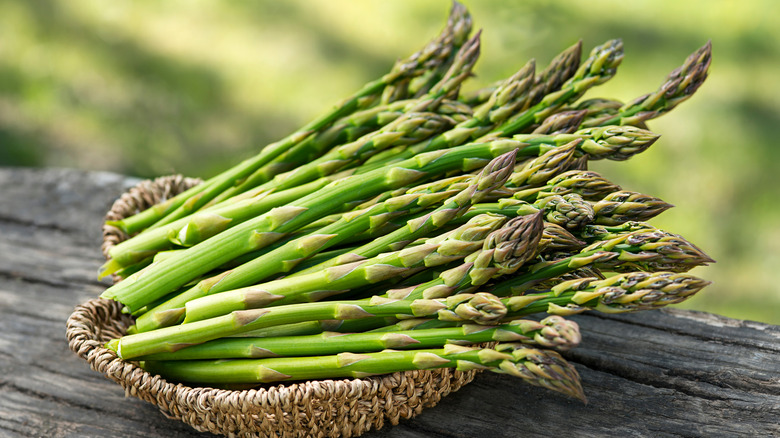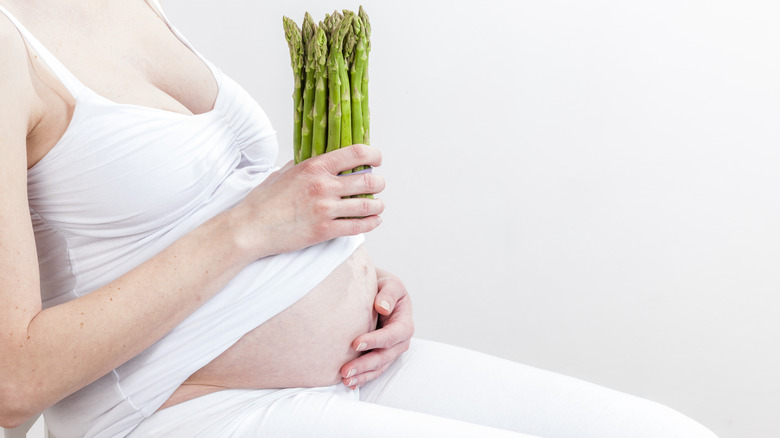Why You Should Consider Adding Asparagus To Your Diet While Pregnant
Pregnancy is an important time to ensure you're eating a well-balanced diet that consists of all the nutrients necessary to facilitate the proper growth of your baby. Johns Hopkins Medicine recommends pulling from a variety of different food groups on a daily basis, including vegetables, fruits, dairy, grains, and protein. Each one of these groups features a range of important vitamins, minerals, and nutrients that your body needs during this time, namely vitamins A and D, potassium, calcium, folic acid, and iron.
Fortunately, the Mayo Clinic outlines some of the most important nutrients and the amount of each you should be aiming for during pregnancy. You should get around 27 milligrams a day of iron, which is essential for oxygen transportation in red blood cells; 600 IU of vitamin D to facilitate bone growth; 1,000 milligrams of calcium, again for bone strength; 71 grams of protein for overall growth; and between 600 and 1,000 micrograms of folate to support brain and spinal cord development. Luckily, these nutrients and more can be obtained from both diet and supplementation to ensure all nutritional needs are being met (per The American College of Gynecologists and Obstetricians). In addition to the above nutrients, experts also recommend 85 milligrams of vitamin C, 450 milligrams of choline, 2.6 micrograms of vitamin B12, and 220 micrograms of iodine.
Certain foods are powerhouses of nutrition, especially for pregnant individuals. One of these is asparagus, which offers an elevated dose of one pregnancy-essential vitamin in particular (via Healthline).
Asparagus is chock-full of folate
Folate is one of the most important vitamins for the proper growth of a fetus, so much so that The American College of Gynecologists and Obstetricians recommends starting supplementation one month prior to even getting pregnant. Ensuring you get enough of this B vitamin will prevent neural tube defects and facilitate the development of the brain and the spinal cord.
In addition to taking a prenatal vitamin, you can obtain the vitamin from food sources, like asparagus, according to Healthline. In fact, a half cup of this vegetable will already cover 22% of the daily recommended dose of 600 micrograms needed, as per the Mayo Clinic. Keep in mind, there are certain benefits to choosing folate-rich whole foods as opposed to relying entirely on a supplement. For instance, you'll avoid some of the more unpleasant side effects that can occur with folic acid supplements when consuming folate from natural sources, such as bloating and nausea, as per Medical News Today. Folate contains a wider range of different forms of vitamin B-9 as opposed to synthetic folic acid.
On top of folate, asparagus offers other important nutrients that will benefit you and your baby during pregnancy. It's a great source of vitamin K, for one, which is essential for blood clotting, as well as fiber, the kind that keeps that pesky pregnancy constipation at bay, explains the experts at Healthline. Finally, the baby's bones will benefit from 20 milligrams of calcium per half cup of asparagus.


